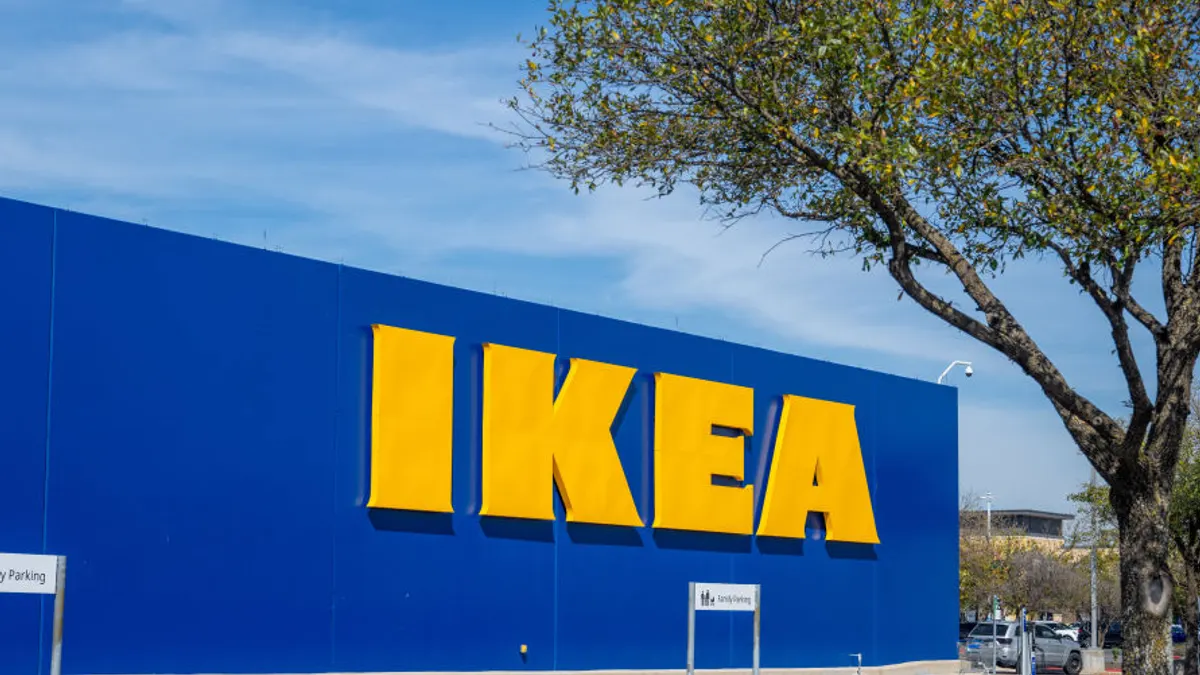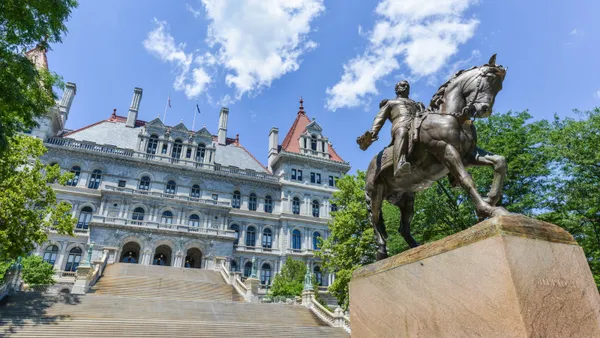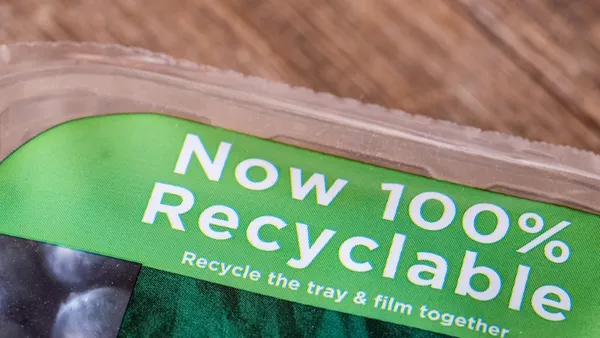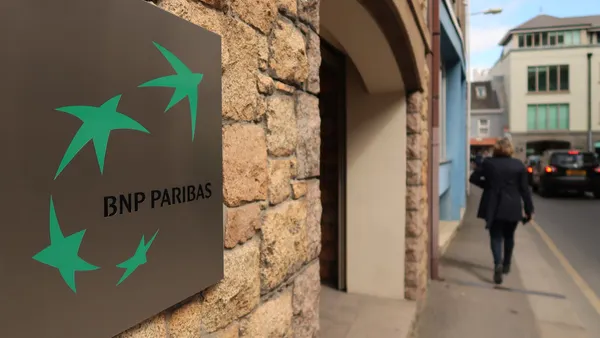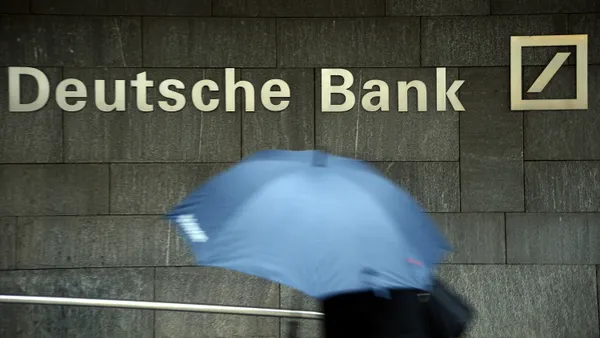Dive Brief:
- Ikea and sustainable waste management company Vanguard Renewables are partnering on a pilot program that converts food waste into clean resources such as renewable natural gas and low-carbon fertilizer for agricultural use, the companies announced Thursday.
- The six-month pilot is backed by the furniture retailer’s U.S. division and has launched at five Ikea units in New Haven, Connecticut; Oak Creek, Wisconsin; Stoughton, Massachusetts; and Schaumburg and Bolingbrook in Illinois. Ikea said it plans to expand the program following the pilot.
- Vanguard Renewables will collect food waste — such as kitchen trimmings, leftovers from customer meals and expired culinary products — generated by Ikea restaurants at these locations and transform them into clean energy and products through an anaerobic digestion process, according to a Sept. 18 release. This process involves microorganisms breaking down biodegradable materials such as dairy manure and organic waste in the absence of oxygen.
Dive Insight:
The program builds on Ikea’s goal of achieving zero organic food waste by 2030, and falls under its broader ambition of halving greenhouse gas emissions across its supply chain by the same year and reducing emissions by at least 90% by 2050, compared to a 2016 baseline.
Ikea estimates each unit participating in the pilot to divert around 250 pounds of waste per week, which would amount to more than 32,000 pounds over the course of six months.
“At Ikea, we see food waste as an opportunity, not a challenge," Ikea U.S. CEO and Chief Sustainability Officer Javier Quinones said in the release. "By recycling food scraps into energy and nutrients, we can minimize our environmental footprint while maximizing the impact of every meal served."
However, Ikea announced earlier this year it was scaling back a sustainability target that aimed for all home deliveries of its products to be made by zero emissions vehicles by 2025. The Swedish retailer said it had revised the goal and will now pursue an objective of using zero emissions vehicles to fulfill 90% of its home deliveries by 2028. The company also said in its February update it will aim to have zero emissions vehicles comprise 90% of the vehicles used for company operations by 2028.
At the time, Ikea attributed the change in strategy to a myriad of factors, including an increase in online shopping and ongoing shifts in the electric vehicle sector.
The food waste pilot launch comes the same day the investment arm of Ingka Group — Ikea’s largest retailer and franchisee holding company — announced it had made a minority investment in Vanguard Renewables. Ingka Investments said Thursday the deal will grow its circular investments portfolio, which backs companies that scale recycling infrastructure and cut waste.
Vanguard Renewables was founded in 2014 with the aim of producing renewable energy, cutting greenhouse gas emissions and preserving farms for future generations. Since then, the company has built out a network of digesters that can process both food and farm waste. The company was purchased by BlackRock Real Assets in 2022. BlackRock subsequently acquired Global Infrastructure Partners in 2024, and Vanguard Renewables is now a part of that group.


